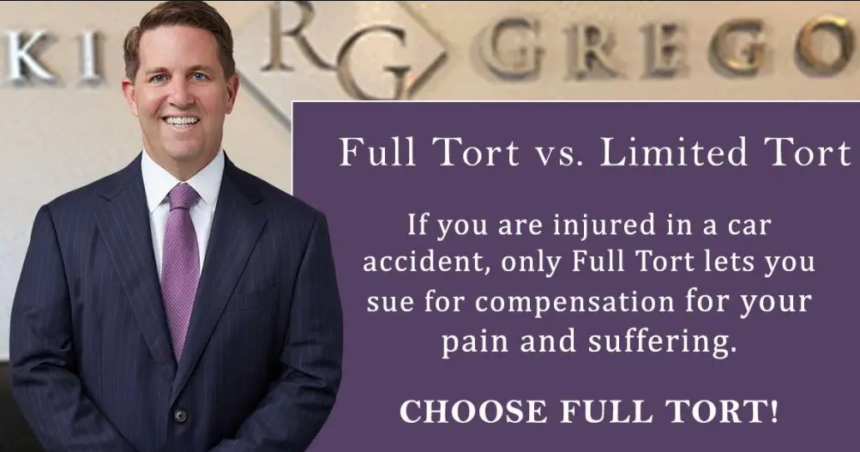Are you familiar with the terms “Full Tort vs Limited Tort” when it comes to car insurance? If not, don’t worry – you’re not alone! Understanding the differences between Full Tort and Limited Tort can have a significant impact on your rights and benefits if you ever find yourself in a car accident. In this ultimate showdown of Full Tort vs Limited Tort, we will break down everything you need to know to make an informed decision that suits your needs. Let’s dive right in!

The Ultimate Showdown: Full Tort vs Limited Tort
When it comes to navigating the complex world of insurance and personal injury claims, understanding the differences between full tort and limited tort can make a significant impact on your ability to seek compensation.
Full tort provides you with unrestricted rights to pursue damages for pain and suffering after an accident, regardless of the severity of your injuries. On the other hand, limited tort limits your ability to seek non-economic damages unless certain criteria are met.
The ultimate showdown between full tort vs limited tort boils down to flexibility versus potential cost savings. Opting for full tort may provide you with greater peace of mind knowing that you have more options available in case of an accident. However, choosing limited tort could potentially lower your insurance premiums but at the expense of limiting your rights in seeking compensation beyond medical expenses.
Consider carefully which option aligns best with your individual needs and circumstances before making a decision.
Who Can Benefit from Full Tort vs Limited Tort?
In the world of insurance, the choice between full tort and limited tort can make a significant impact on your financial well-being after an accident.
Full tort coverage provides you with the unrestricted ability to seek compensation for pain and suffering, regardless of the severity of your injuries. This option is ideal for individuals who want to have maximum protection in case of a serious accident that results in long-term physical or emotional damage.
On the other hand, limited tort may be more suitable for those looking to save on their premiums and are confident they will not be involved in a major collision. However, it’s essential to understand that choosing limited tort means giving up your right to sue for non-monetary damages unless certain conditions are met.
Weighing the benefits of full tort versus limited tort requires careful consideration based on your individual circumstances and risk tolerance level.
When Is the Best Time to Use Full Tort vs Limited Tort?
Determining when to choose between full tort and limited tort can be a crucial decision. If you’re someone who values maximum protection and wants the ability to seek full compensation for damages in an accident, then full tort may be the best option for you. On the other hand, if you’re looking to save on insurance premiums and are willing to accept limitations on your ability to sue for pain and suffering, limited tort might suit your needs.
The best time to consider using full tort is if you have a higher risk tolerance or anticipate being involved in situations where the potential for significant injuries exists. This option provides more flexibility in seeking compensation beyond just medical expenses.
Alternatively, if you prioritize cost savings and believe that your risk of being in a severe accident is low, limited tort could be a suitable choice. It’s essential to evaluate your individual circumstances carefully before making a decision between the two options.
Conclusion
Choosing between full tort and limited tort is a decision that can have a significant impact on your ability to seek compensation after an accident. Understanding the differences between the two options and how they apply to your unique situation is key in making the right choice.
While limited tort may offer lower premiums, it comes with restrictions on your ability to sue for pain and suffering damages. On the other hand, full tort provides more comprehensive coverage but typically at a higher cost.
The decision between full tort and limited tort depends on your individual circumstances, risk tolerance, and budget. It’s essential to weigh the pros and cons carefully before making a final choice.
Whether you opt for full tort or limited tort insurance coverage, ensuring that you are adequately protected in case of an accident should be a top priority. Remember to consult with your insurance provider or legal advisor if you need further guidance on which option is best suited for you.





